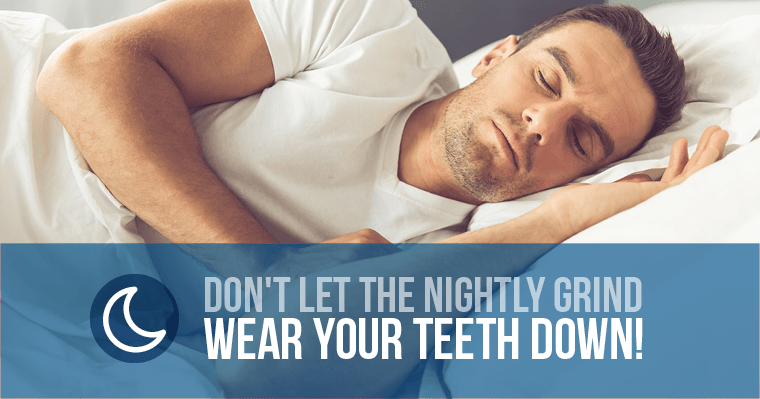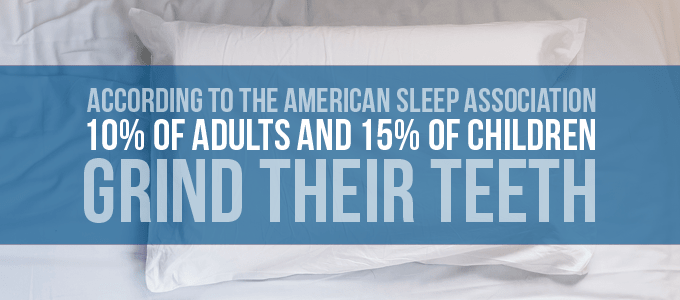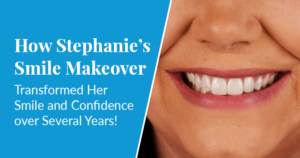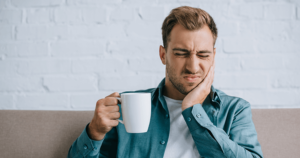How to Stop Clenching Your Teeth at Night

June is Migraine and Headache Awareness Month, and we want to take this opportunity to raise awareness about teeth grinding. Why in the world is your dentist talking about teeth grinding to raise awareness about chronic headaches? Grinding your teeth can lead to migraines and chronic headaches along with other uncomfortable symptoms, including:
- Sensitive teeth
- Clicking or popping in the jaw
- Broken and cracked teeth
- Teeth wearing down
- Jaw soreness
Are these symptoms sounding familiar? You may be grinding your teeth at night, known as bruxism, and you may not even realize it! This is a fairly common disorder, and there are solutions to relieve your headaches and other symptoms.
Consult your dentist for a customized nightguard
While customized nightguards cannot stop teeth grinding, they can protect your teeth from the nightly grind. Why see your dentist for a nightguard? Unlike over-the-counter guards, nightguards are custom-made by your dentist of high-quality materials and fit snuggly around your smile for comfort.

Correct misaligned teeth
Are your teeth out of alignment? Do you wish you had a straighter smile?
You can have a beautiful smile AND possibly stop bruxism by seeing your dentist about cosmetic and restorative dentistry. Bruxism is often a sign your bite and teeth are out of alignment, and correcting it may help. Did we mention you will also gain a beautifully improved smile? You can think of it as killing two birds with one stone, walking out of our office out of pain AND with a new smile.
Some dental treatments could include:
- Orthodontics (traditional braces or Invisalign)
- Porcelain crowns
- Porcelain veneers
- And other services
Avoid caffeine and alcohol
If you have caffeine and alcohol in the evening, it will affect your quality of sleep. In turn, you’re more likely to clench and grind your teeth at night. Be sure you completely avoid these beverages after dinner:
- Soda
- Coffee
- Tea
- Beer/wine/hard liquor
Reduce stress
According to The Bruxism Association, nearly 70% of bruxism cases are caused because of stress and anxiety. If you can limit your stress, you have a good chance of reducing teeth grinding. Some activities to help relieve your stress could include:
- Exercise
- Meditation
- Getting a massage
- Have a relaxing bath before going to bed
- Breathing deeply
Stop the nightly grind
If you’re seeing the signs of teeth grinding (including chronic headaches or migraines), contact our dental office to get you in for a nightguard consultation 316-722-8148. It could be the solution to a great night’s sleep – free from pain!
The content on this blog is not intended to be a substitute for professional medical advice, diagnosis, or treatment. Always seek the advice of qualified health providers with questions you may have regarding medical conditions.
Re-posted with permission. Source.



